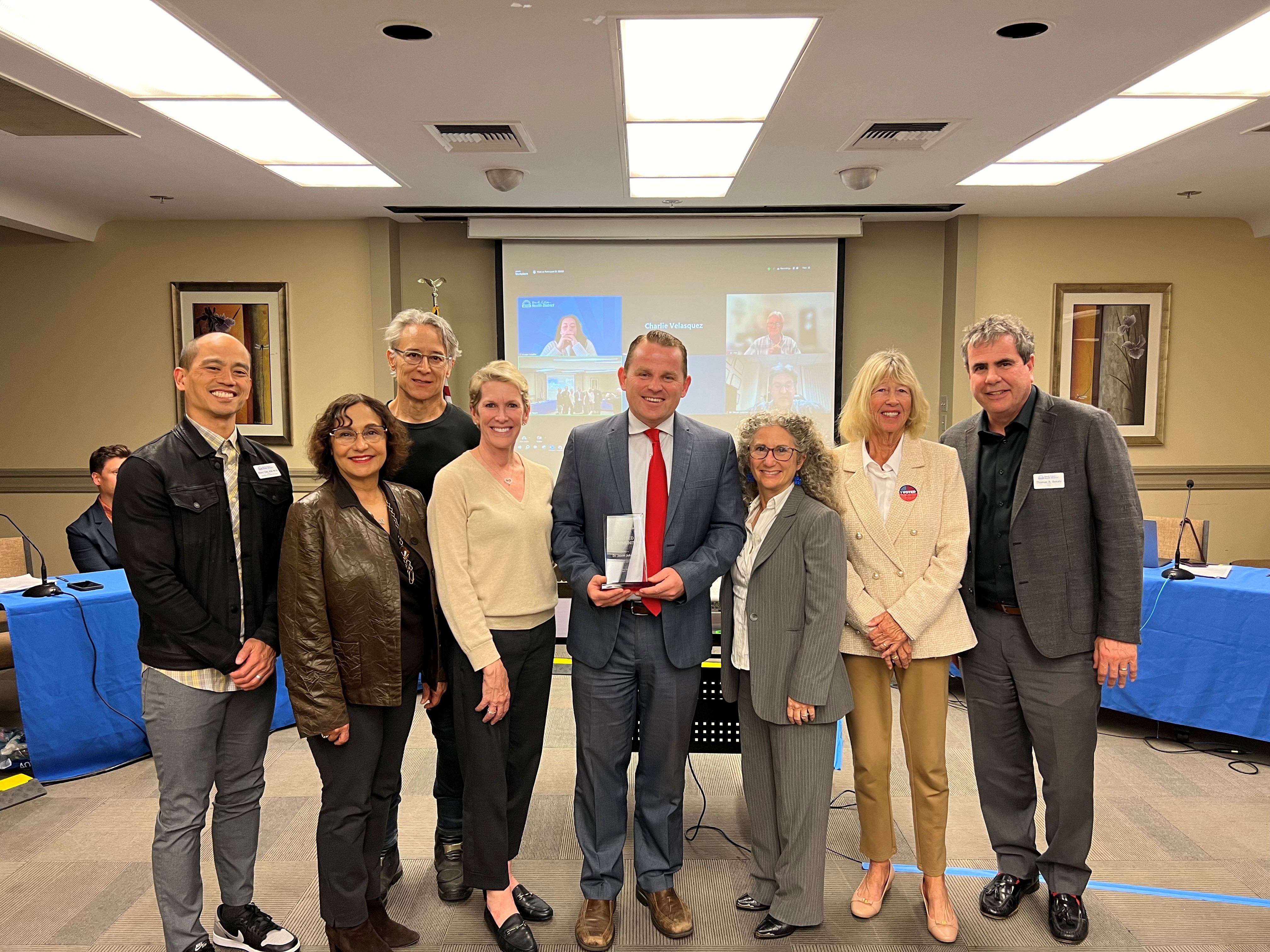
Like the resurrected Nixon on the road to China, the once and would be future governor of California Jerry Brown presented himself as a tactical conservative and strategic progressive during an hour-long question and answer session with reporters two weeks ago at the Los Angeles Marriott. Brown was in Los Angeles to address the California Democratic Party Convention at the Los Angeles Convention Center. Sounding like a conservative, Brown said government can’t solve the state’s economic problems.
“I don’t expect politicians to lead the way. The key is for government not to put obstacles in the way. We need a clear set of rules. Certainty is what’s important in attracting capital,” he said
Then, sounding a progressive note, he blamed business for the state’s economic woes.
“Government, not the free market, had to bail us out,” he said.
“One thing we don’t need is fewer teachers, which has resulted from the meltdown on Wall Street. Unregulated business managers, investors and bankers so stressed the economy that it collapsed.”
“It’s a matter of balance,” he said in a reconciliatory tone. “We need a vibrant public sector within a vibrant private sector. There are many components to civilization. We can’t be obsessed with just one.”
In contrasting his political experience with the putative Republican gubernatorial nominee Meg Whitman, he said, “The governor needs to know the components and the players and to have a team to get the job done.”
“Transmission lines can take nine years. It takes government to cut the red tape.”
“A governor can’t just carry water for one party. The challenge for a governor is to work with the legislature, to crystalize the debate and to be motivated to tackle issues like prisons and water.”
Brown, 72, served two terms as governor and is the current State Attorney General. Whiteman, 53, is a former CEO of EBay. She has never held elected office.
Brown suggested people who argue California is ungovernable and will require years to recover from the recession haven’t studied even recent history.
He noted that the 1973 oil crisis sent similar fears through the state and that following his election in 1974 he helped created 1.9 million new jobs.
“California’s deficit is $18 billion, or one percent of the $1.8 trillion gross state product. The federal government’s deficit is 10 percent of GNP. Is America ungovernable?” he asked, rhetorically.
He said California’s “access to the Pacific, its technology sector and its creativity” will speed the state’s rebound.
“California has a $1.7 million economy. Next year it will be $1.8. It’s one of the largest in the world,” he noted.
No time for term limit debate
Paradoxically, Brown cited the State Legislature’s low, 18 percent approval rating as a reason not to campaign for the elimination of term limits, even though he said term limits “could be” a factor in the legislature’s ineffectiveness.
“The legislature’s rapid turnover might be a good case study for the USC School of Public Policy, but I don’t think one can talk about lengthening the legislators’ stay until the shortened terms produces better results. As governor, I’ll need to restore public trust before I can seek change,” he said.
“Have you ever tried fundamental change? It’s hard to change oneself, much less the body politic. Incremental change is the way forward,” he said.
Brown said he did not support reducing the two-thirds legislative vote required to approve new state spending, but that he would “like to give more thought” to reducing the two-thirds requirement for budget passage to a simple majority.
Asked by a reporter why he was “allowing Whitman to set the agenda for the race,” Brown responded, “When people say ‘Where are you?’ they mean ‘Where are your commercials?’ which can cost $100,000. Spend it now and you have no money in August. My sister had that problem. [Kathleen Brown ran unsuccessfully for governor against incumbent Pete Wilson in 1994.]
Brown said it’s not possible to simultaneously campaign and fund raise, and that fundraising now has a higher priority.
“September and October are the key months. I can tell you that and I’m very confident it’s true.
“It’s still April. This is early. I’ve raised $16 million. I’m doing well. I’ll be fully financed during the key months of the campaign.”
Whitman’s spending will be a campaign issue, Brown said. The billionaire Whitman has spent $59 million of her own money since announcing her candidacy in February, 2009. A Los Angeles Times/USC College of Letters, Arts and Sciences poll at the start of April found Whitman leading Brown 44 to 41 percent.
“The shock and awe of enormous spending could be a new model. Make enough money and you can buy an election. But I think that underestimates the intelligence of the electorate and the unpredictable give and take of a campaign. I don’t think you can buy an election I’m in,” he said. ER








